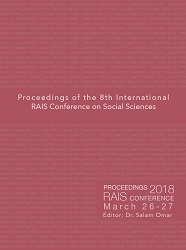Climate in the 21st Century:
Climate in the 21st Century:
A Macroeconomic Model of Fair Global Warming Benefits Distribution to Grant Climate Justice Around the World and Over Time
Author(s): Julia M. Puaschunder
Subject(s): Social Sciences
Published by: Scientia Moralitas Research Institute
Keywords: Climate Change; Climate Change Bonds; Climate Change Gains; Climate Change Losses; Climate Justice; Europe; Macroeconomic Modelling; Tax-Bonds-Transfer Strategy; Taxation; United States; World
Summary/Abstract: Climate justice accounts for the most challenging global governance goal. In the current post- COP21 Paris agreement climate change mitigation and adaptation efforts, the financialization of the ambitious goals has leveraged into a blatant demand. In the weighting of the burden of global warming, the benefits of a warming earth have been neglected since recently. Following the introduction of the gains from climate change (Puaschunder 2017), this article proposes a model to distribute the benefits of a warming earth in a fair way based on which countries are losing and which countries are winning from a warming earth until 2100. A macroeconomic cost-benefit analysis thereby aids to find the optimum solution on how to distribute climate change benefits and burden within society. When unidimensionally focusing on estimated GDPgrowth given a warmer temperature, over all calculated models assuming linear, prospect or hyperbolic gains and losses, the world will be gaining more than losing from a warming earth until 2100. Based on the WL index of 188 countries of the world, less countries (n=78) will gain more from global warming until 2100 than more countries (n=111) will lose from a warming earth. Based on the overall WLTT index factored by GDP per inhabitant, global warming benefits are demanded to be redistributed in a fair way to offset the costs of climate change loser countries for climate change mitigation and adaptation efforts and to instigate a transition into renewable energy. Adding onto contemporary climate fund raising strategies ranging from emissions trading schemes (ETS) and carbon tax policies as well as financing climate justice through bonds as viable mitigation and adaptation strategies, climate justice is introduced to comprise of fairness between a countries but also over generations in a unique and unprecedented tax-and-bonds climate change gains and losses distribution strategy.
Book: Proceedings of the 8th International RAIS Conference on Social Sciences
- Page Range: 205-243
- Page Count: 37
- Publication Year: 2018
- Language: English
- Content File-PDF

